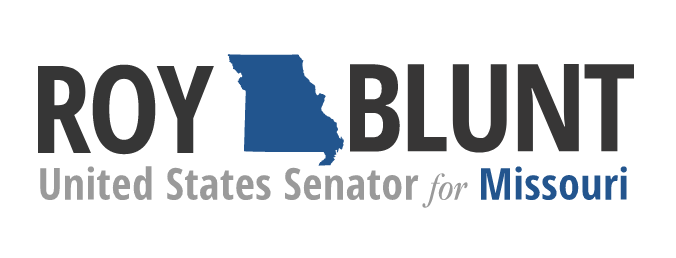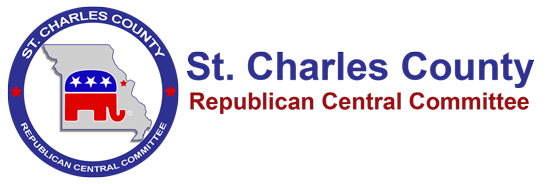
| VIDEO: Blunt Slams Massive, Partisan Election Legislation
|
| WASHINGTON – U.S. Senator Roy Blunt (Mo.), Ranking Member of the U.S. Senate Committee on Rules and Administration, spoke on the Senate floor today to outline several of the significant problems with the massive, 800-page election legislation, S.1, Senate Democrats have just introduced. Blunt, who previously served as a state and local election official for 20 years, said the bill would impose a one-size-fits-all federal takeover of elections that would make elections more chaotic and less secure. The Rules Committee is scheduled to hold a hearing on the legislation next week. |
|
CLICK HERE to Watch Blunt’s Remarks CLICK HERE For Audio |
| Following Are Blunt’s Remarks:
“I want to talk today, Mr. President, about a draft I just received, a bill we’re actually going to have a hearing on next week—S.1, the so-called For the People Act. This bill is a companion act to the Senate version of H.R.1. I actually think it’s even longer than H.R.1, which I would have thought impossible. It’s over 800 pages. I think they’ll be introducing the final version in the next day or so. And that’s a good thing, since we’re supposed to have a hearing on it in the middle of next week. It packs a lot of what I consider bad changes relating to election administration, campaign finance, redistricting, and so much more into those 800 pages. But there’s a lot of space there to pack things in. It’d take a lot more time than I’ve got today to talk about all the things in the bill that I have concerns about. “But I’d say to start with, this idea that one-size-fits-all, this federal takeover of elections, can’t be in the interest of voters in our country. It would force a single, and I believe a partisan, view of elections and how they should be run in 10,000 different jurisdictions in the country. I don’t know how you do that. I don’t know how you take 10,000 jurisdictions and try, at the Washington, D.C. level, in legislation to determine changes like how they would register voters—every state under this bill would do it exactly the same way, which voting systems they would use, how they’d handle early voting and absentee ballots—no matter how long they’d been doing it one way that worked for voters in their state, and how they maintain their voter lists—whether you go in and verify whether people on the voter list were still there. We used to think that was a critically important protection in the election system, that you knew that the voters that had registered to vote in a jurisdiction actually were still in that jurisdiction. It was actually, in every state, a bragging point of responsible election administration. That would largely go away in this bill. “This bill would require states to make ballot drop boxes available for 45 days prior to the federal election. Those are boxes that even designates the locations and tells the local jurisdiction how they need to handle those ballots as they come out of the boxes and would be processed. Remember, these would be not mailboxes. They would be ballot drop boxes all over the jurisdiction if you could find one. “It would mandate unlimited ballot harvesting. That’s a process where one person could collect and submit as many ballots as they can collect and submit. You know, in recent elections, we’ve seen ballot harvesting as a real problem in these elections. Not only does one person have your ballot and get that ballot to where it should be, frankly, and one of the problems always with ballot harvesting is maybe a person who knows voters pretty well would collect 20 and put 18 in the mailbox or take 18 to the vote counting area, and the other two just somehow don’t get there. Unlimited ballot harvesting, prohibited in many states, and in fact in recent years, the Democrat House of Representatives failed to seat an elected representative in North Carolina because that person had used ballot harvesting. “The bill would require states to allow felons to vote in federal elections. If you didn’t like that, in this case, you can have two sets of voter registration—one for federal elections and one for all other elections. And by the way, if you did that, you’d also have to have two different sets of ballots for an election day that had both local and state and federal issues on the ballot. And this bill would require, Mr. President, that all of these changes be made quickly. “Even jurisdictions that recently have changed their processes and spent a lot of time talking to people about those changes over maybe two years or four years would suddenly be told, ‘no, you have to change them one more time.’ And maybe it’s a day here, a day there, but that makes a big difference if you’ve already got in your mind how far before an election you have to register to vote or transfer your address or things that election administrators work on all the time. “You know, my first elected job was as the county clerk in Greene County, Springfield, Missouri, where I was the chief election authority. We had a county with about 180,000 people in it and lots of registered voters. But you had to take that very seriously. Later, I was the chief election authority in our state for eight years as the Secretary of State. And I know how much planning goes into the elections. I know how seriously local officials take it. I also know how difficult it could be if every change you made had to be cleared some way with somebody in Washington, D.C. You know, states can often take years to transition to a new ballot system or transition to a new way they do things. They also can do it very quickly if they need to, and we saw that happen in a number of states last year. I think this bill, if it did pass, really doesn’t allow the time you need for planning. “The diversity of our election system is one of the great strengths of our system. There’s bipartisan agreement on that. I’ve quoted President Obama on this before. But he said in 2016, ‘there is no serious person out there who would suggest somehow that you can even rig America’s elections, in part because they are so decentralized in the numbers of votes involved.’ This bill would undo that decentralized strength. It would undo that local and state responsibility for having laws that voters who vote for you understand you need to apply in the fair and best way you can. The bill would make our system less diverse, less secure. “Unfortunately, this bill doesn’t just stop at election administration. It takes the campaign finance system and changes it dramatically. You know, when the Federal Election Commission was created in the early 1970s, it was a six member commission. It was to be bipartisan. This turns it into a five member commission, with whoever is the president being able to appoint the third member on one side to always out vote, if they need to, the two members on the other side. There have been many times, obviously, in the history of the Federal Election Commission when the vote has been three to three or two to two, whatever the makeup was at the time. This would do away with that and basically turn the commission from a bipartisan commission into a prosecutorial body where one side always has the majority if they want it. I think voters should and would be very concerned about that. It would allow the chair of the FEC to make key staffing changes. It would allow judges to review cases even when the commission found no violation of the law. “In addition, the bill would create a system of public financing for political campaigns by matching certain contributions with federal dollars. The match would be six to one. So in the matchable, low dollar—whatever you define that to be—contributions, if you raise $100,000 of those contributions, Mr. President, you’d have $700,000. $600,000 of those dollars could have been used by the federal government for other things rather than to finance politicians in a campaign. Now, I understand why politicians would like that. I’ve raised as much money as most people in this body have raised. And the idea that just the federal government would come in at some point and give me $6 for some percentage of those that I raised might be pretty appealing, but I think it would be wrong.
“It takes jurisdiction away from the states in how to draw congressional districts. Now, this is going to be inconvenient if it passes because the Constitution specifically says the state legislatures decide how to draw congressional districts. It doesn’t say the Congress of the United States tells the state legislatures how to draw congressional districts. But this bill would do that. The bill requires redistricting commissions. It dictates who would serve on the commissions. It sets the criteria and the procedures for how you draw the maps. It lays out how the commissions have to take public input. And if that wasn’t bad enough, it doesn’t stop there. It even determines which courts act on all redistricting cases. “And this would be a dramatic change where again, you have a one-size-fits-all system in a country that clearly is not a one-size-fits-all country. Since very few states currently have commissions like that, it would set a lot of deadlines that we don’t currently have. Districts drawn using 2020 census data would all but be guaranteed to be drawn by federal courts just because of the time that this bill sets out. … We’ve never thought that power belonged in Washington, D.C. before, but this bill does.
“It’s an unprecedented power grab by the federal government at the expense of the states. I think it’s a transparent attempt to stack the elections in favor of one party. Election law should not be about a single party. If this bill were to pass, it would do nothing, in my view, to bolster public confidence in elections. In fact, I suspect most election officials around the country would begin to say, ‘I’d like to be able to do something about that problem, but we’ll have to clear that with Washington, D.C. first.’ I think the divisions in the country would be worse, not better. “Successful election laws are passed on a bipartisan basis. We did that with the Help America Vote Act after 2000. We provided assistance and some direction with finances, but we didn’t change a single state law after 2016. We left that up to the states. “We created bipartisan impact when we did that. We should continue to put the strength and the security of the country’s elections before party. We should continue to oppose the efforts of a single party to make sweeping partisan changes in our election system. …
“I encourage my colleagues to look carefully at S.1, and I think if you do, a majority in the Senate will not support this bill.” |
